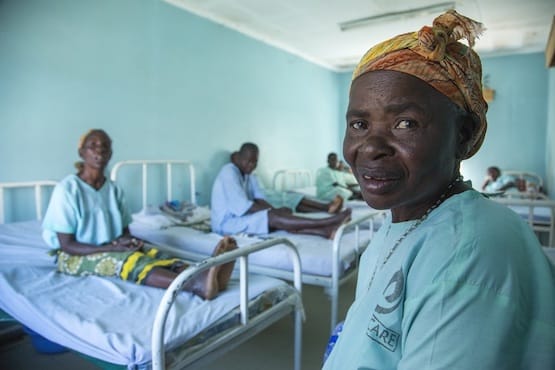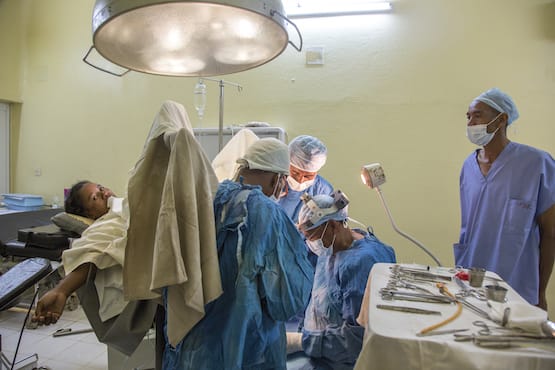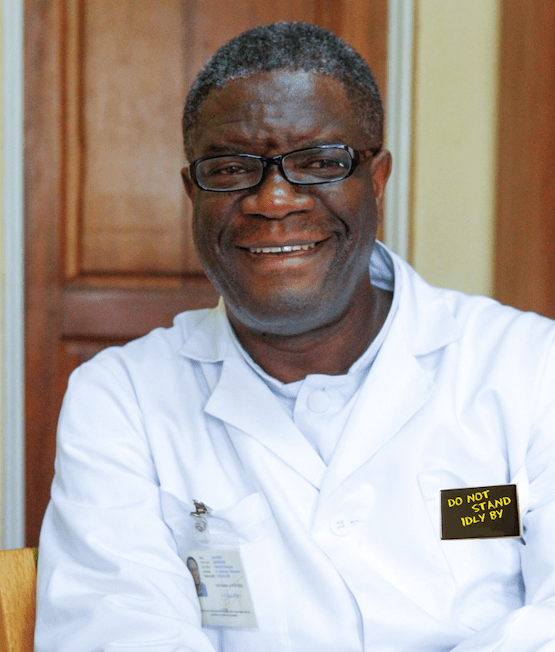The problem: obstetric fistula
Obstetric fistula is one of the most devastating and serious childbirth injuries. It most commonly occurs in poor, rural areas in Africa and Asia where women have limited access to emergency obstetric care, such as C-section. When a woman experiences a prolonged, obstructed labor under these conditions, she will likely be in excruciating pain for days. The constant pressure of the baby’s head on the pelvis restricts blood flow to the soft tissue between the mother’s vagina and her bladder or rectum, leaving holes known as “fistulae.” These holes cause incontinence.
Unable to control her urine and/or feces, a woman will often also suffer from chronic infections and pain. What’s more, with too little community understanding of fistula and its causes, a woman can be blamed for her condition and shunned by her neighbors and family.
Each year between 50,000 to 100,000 women worldwide are affected by this wrenching condition. [1]

The solution: cost-effective, restorative surgery
An obstetric fistula can only be treated with corrective surgery. If the operation is performed by a skilled surgeon, a woman with fistula can very often return to a normal life, with her continence and hope restored. However, due to stigma,lack of awareness, poverty, and inadequate healthcare systems, field experts estimate fewer than 20,000 procedures take place annually. [2]
Aggregated data from Fistula Foundation’s current partners shows that it typically only costs US$598 to provide a woman in Africa or Asia with life-changing fistula repair surgery and rehabilitation services — less than a single night’s stay in most hospitals in the United States. [3] (Actual surgical costs vary depending on the local economies and healthcare infrastructure where partners work. The costs for more complicated surgeries, such as treating dual vaginal and rectal fistula, can be greater.) The global success rate for fistula repair surgeries is approximately 86%. [4]
Fistula most commonly occurs to women in their twenties, in countries where the average lifespan is approximately 65 years—meaning a one-time surgical intervention can restore 40+ years of health. Without access to care, fistula survivors are forced to live with this devastating injury for the rest of their lives.

How Fistula Foundation works
Fistula Foundation is the global leader in fistula treatment, funding more surgeries than any other organization, including the US government. Their work supports one goal: to provide as many life-changing fistula surgeries as possible. More than 80% of funds raised by Fistula Foundation go directly to supporting programs.
Fistula Foundation’s strategy builds sustainable in-country capacity by covering the cost of surgery, surgeon and nurse training, medical equipment and post-surgery rehabilitation. Fistula Foundation partners closely with local doctors and nurses, who are best positioned to understand the cultural nuances of how to implement effective programs.
Grants are invitation only. Potential partners go through a rigorous review process, including external reference checks of local doctors’ reputations, fistula surgery skills, and certification. Grant recipients receive funds in stages and are required to provide regular, detailed reports. Site visits are also conducted regularly, both to build a closer relationship between Fistula Foundation staff and their partners on the ground, as well as to help ensure funds are used appropriately.

In 2014, Fistula Foundation launched an innovative countrywide treatment network program in Kenya, with the potential to end fistula across the country in a generation. Its integrated network allows surgeons, outreach workers, and hospitals to share resources and information to effectively treat more Kenyan women than ever before. The program was so successful, Fistula Foundation deployed the same countrywide treatment model to Zambia in 2017. Both programs are thriving, and the organization looks forward to expanding its Fistula Treatment Network into more countries.
